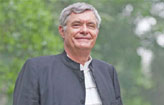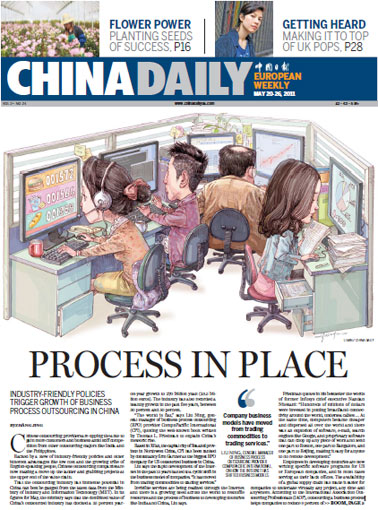Asia
Japan approves plan to join child custody pact
Updated: 2011-05-20 09:17
(Agencies)
TOKYO - Japan is taking a first step toward joining an international child custody convention amid foreign pressure on Tokyo to revise policies some say allow Japanese mothers to too easily take their children away from foreign fathers.
Government spokesman Tetsuro Fukuyama said that the relevant ministers endorsed plans Thursday to change domestic laws to bring them in line with the 1980 Hague Convention on international abduction, signed by 80 countries. An official Cabinet approval is expected Friday.
But the proposal must also be approved by parliament for it to take effect, and it could face resistance there.
As it stands now, Japanese law allows only one parent to have custody of children in divorce cases _ nearly always the mother.
That's kept foreign and Japanese fathers from seeing their children until they are grown. Activists say Japan's court system is tilted against fathers and foreigners.
"We give children's welfare the top priority, and we've reached a conclusion that it would be better to join the convention," Fukuyama said.
Still, the proposal is not expected to change its current single custody policy.
Under the plan, Japan would establish a new liaison office within the Foreign Ministry and amend domestic law to allow foreign parents more access to their children while also addressing domestic concerns about abusive foreign partners _ one of the main reasons behind Japan's past opposition to joining the pact.
Japan has been under pressure from the US, Britain, France and other countries to join the convention amid an increase in cases of Japanese mothers keeping foreign fathers from seeing their children.
The issue gained increased attention in 2009, when American Christopher Savoie was arrested in Japan after his Japanese ex-wife accused him of abducting their two children as they walked to school. His ex-wife Noriko Savoie had violated a US court custody decision by taking the children from Tennessee to Japan a month earlier.
Amid accusations of kidnapping from both sides, Savoie was eventually released and allowed to leave the country, on the condition he leave his children behind.
"The United States is encouraged by the serious consideration that the government of Japan is currently giving this issue, and we look forward to Japan reaching a positive decision to ratify the Hague Convention as soon as possible," the US Embassy in Tokyo said in a statement.
American Kevin Brown, whose wife left him four years ago and took their 2-year-old son with her, said he was skeptical anything would change.
"I think it's a step in the right direction, (but) I don't think anything will become of it. I think it will take a long time to ratify, and I don't think it will change anything," said Brown, a 44-year-old from Illinois who teaches English in Nagoya.
Courts have ruled that he can spend five hours with his son, now 6, every five weeks _ far short of what he thinks is fair. Also, his wife, with whom he is still in divorce proceedings, is allowed to join those visits and decides where they will go and how much money will be spent, Brown said.
"I want to see more American-style (arrangements), where you get spend significant time with your child _ on summer vacation, Christmas vacation, every other weekend. That's what Japan needs," he said.
Last year, the US House of Representatives turned up the pressure on Japan by voting overwhelmingly for a nonbinding resolution that "condemns the abduction and retention" of children held in Japan "in violation of their human rights and United States and international law."
Japan is the only Group of Seven nation that hasn't signed the convention.
E-paper

Thawing out
After a deep freeze in sales during the recession, China’s air conditioner makers are bouncing back
Cool Iron lady
Of good and evil
Build on security initiatives
Specials

Memory lanes
Shanghai’s historic ALLEYS not just unique architecture but a way of life

Great expectations
Hong Kong-born singer songwriter rises to the top of the UK pops.

A diplomat of character
Belgian envoy draws on personal fascination to help build China ties.
